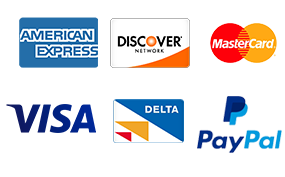What motivates us
Discussion question and responses
Cecelia L week 3
What motivates us? Do we motivate ourselves? Do things motivate us? Are we motivated by power, wealth, or fame? The answers to these type of questions can help determine if we are intrinsically or extrinsically motivated. If we are an intrinsically motivated person, we do our job, learn new things, seek order, acceptance, and seek autonomy because we want to do these things. If we are an extrinsically motivated person, we may do things because we want a reward or because we want to please someone. In organizational behavior, intrinsic motivation is more desirable. People are more inherently focused on intrinsic growth motivation as opposed to external because intrinsic goals offer a healthier self-satisfying existence through autonomy, relatedness, and competence (Vansteenkiste & Lens, 2006; Fowler, 2014). Vansteenkiste and Lens (2006) found accomplishment of intrinsic goals stimulated more profound learning of the material, both short-term and long-term. Intrinsic goals lead to task identity.
Maslow’s concept of self-actualization is at the top of his needs theory which could be pondered as a path to intrinsic goals and motivation. As each need is met, higher order needs become emergent such as the self-actualization concept (Winston, 2016). Maslow says it is an interpersonal human relationship of safety, love, belongingness, feeling of worth and self-esteem (Maslow, 1987) that appears intrinsic.
Contingency theory could also meet the needs of employees of intrinsic or extrinsic motivational needs and goals. With contingency theory, the manager uses the type of management theory that will push for the best result based on the individual employee. Since not all theories work in all situations, the best management practice or style is contingent on the circumstance which could work agreeably in dealing with motivation.
Concerning the hiring of the American worker who is more intrinsically motivated than extrinsically, Prendergast (2008), discusses a great point which is for a “theory of intrinsic motivation to be useful, firms must have some control over it” (p. 201). She explains with an example of a social worker who is highly motivated to the point of ignoring costs. If the firm is not in control, costs may get out of check very quickly. Prendergast adds into her conclusion a novel idea; if money doesn’t motivate, then maybe preferences could be an alternative (Prendergast, 2008).
Fowler, S. (2014). What Maslow’s hierarchy won’t tell you about motivation. Harvard Business Review, Motivating People. https://hbr.org/2014/11/what-maslows-hierarchy-wont-tell0you0about-motivation.
Luthans, F. (1973). The contingency theory of management. A path out of the jungle. Business Horizons, 16(3), 67.
Prendergast, C. (2008). Work incentive, motivation, and identity, intrinsic motivation and and incentives. American Economic Review, 98(2), 201-205. http://www.aeaweb.org/articles.php?doi=10.1257 /aer.98.2.201
Vansteenkiste, M. & Lens, W. (2006). Intrinsic verses extrinsic goal contents in self-determination theory: Another look at the quality of academic motivation. Educational Psychologist, 41(1), 19-31. doi:10.1207/s15326985ep4101_4
Winston, C. N. (2016). An existential-humanistic-positive theory of human motivation. The humanistic Psychologist, 44(2), 142-163.
